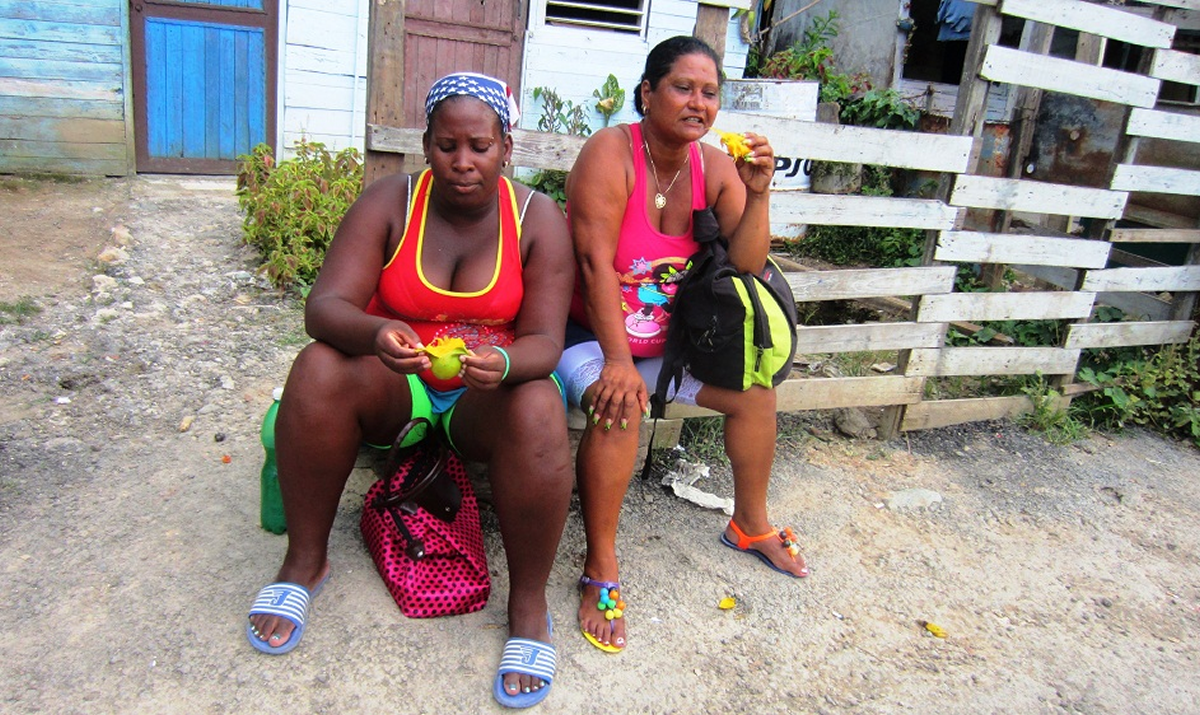The International Day for the Elimination of Racial Discrimination
March 21, 2016: The International Day for the Elimination of Racial Discrimination: “Challenges to Confront Racism Against People of African Descent in the Americas” Despite the fact that Afro-descendants make […]

March 21, 2016: The International Day for the Elimination of Racial Discrimination: “Challenges to Confront Racism Against People of African Descent in the Americas”
Despite the fact that Afro-descendants make up nearly 200 million people in the Americas, they continue to suffer pervasive discrimination. From the streets of Ferguson, Missouri and Baltimore, Maryland in the United States to the favelas of Rio de Janeiro, Salvador de Bahia or Recife in Brazil; from the streets of Buenaventura or Cali in Colombia to the streets of Santo Domingo in the Dominican Republic, Afro-descendant youth face racial profiling and police brutality throughout the Americas.
In Colombia, Afro-Colombians and indigenous peoples have been disproportionately impacted by the long civil war. In comparison to other ethnic groups, they have lower levels of representation in the government and face higher levels poverty and violence, accounting for 40% of persons internally displaced by the conflict. The Department of Chocó, where the majority of the population is Afro-descendant, remains the poorest in the country. In August 2015, as the Colombian government and the FARC guerillas continued negotiations to end the armed conflict, the UN Committee on the Elimination of Racial Discrimination strongly recommended the inclusion of Afro-Colombian and indigenous communities in the Peace Process.
In Cuba, where Afro-Cubans make up 36% of the population according to official statistics, the Castro regime has proclaimed the elimination of racial discrimination since 1961. However, Afro-Cubans have yet to benefit from the small but significant economic opportunities emerging in the country, especially in work as independent entrepreneurs or in the tourism industry, where the government has shown a preference to hire light-skinned Cubans.
In the Dominican Republic, Afro-descendant Dominicans and Dominicans of Haitian descent continue to suffer discrimination because of their skin color, national origin, and heritage. A policy to denationalize hundreds of thousands of Dominico-Haitians and a long-standing history of mass deportations of Haitians and Dominico-Haitians continue to prove that racial discrimination is not always about black and white. In the Dominican Republic, Dominican Afro-descendants continue to discriminate against other Afro-descendants, be they Haitians or Dominico-Haitians.
In Brazil, home to more than 100 million persons of African descent—52% of the nation’s population and the largest population of Afro-descendants outside of Africa—structural violence, poverty, and racism mark the daily lives of Afro-Brazilians, especially Afro-Brazilian women and youth. Last year, a UN Women-sponsored study found that while domestic violence against white Brazilian women decreased by 10% during the last decade, over the same period the incidence of domestic violence against Afro-Brazilian women increased by more than 54%.
In Peru, where Afro-Peruvians have not been counted in a national census since 1940, poverty, unemployment, and poor access to quality health care, as well as under representation in all spheres of government continue to be the norm. Afro-Peruvian groups continue their efforts to raise awareness about the problems they confront. At the same time it is vitally important that they be accurately counted in the 2017 census.
In the 2013 General Assembly of the Organization of American States (OAS) held in Antigua, Guatemala, OAS member states approved an Inter-American Convention against Racism, Racial Discrimination and Related Intolerance. To date, nine countries have signed the Convention but none have ratified it. Our role during the UN Decade of People of African Descent is to make sure that the Convention enters into force before the end of the Decade.
March 21st holds great great significance in the history of the struggle to end the policy of apartheid, which segregated people on the basis of race and denied people of color their basic human rights. On this day in 1960, South African police opened fire on a peaceful protest, killing 69 people and injuring many more. The crowd had gathered outside a police station in the Sharpeville township to protest South Africa’s “pass laws,” which restricted the movement of colored people in white areas.
Just days after the brutal attack, the Sharpeville massacre prompted the first resolution of the United Nations Security Council calling on the South African government to abandon apartheid and “initiate measures aimed at bringing about racial harmony based on equality.” The massacre also led to the adoption of UN General Assembly Resolution 2142 (XXI), proclaiming March 21st the annual International Day for the Elimination of Racial Discrimination.

